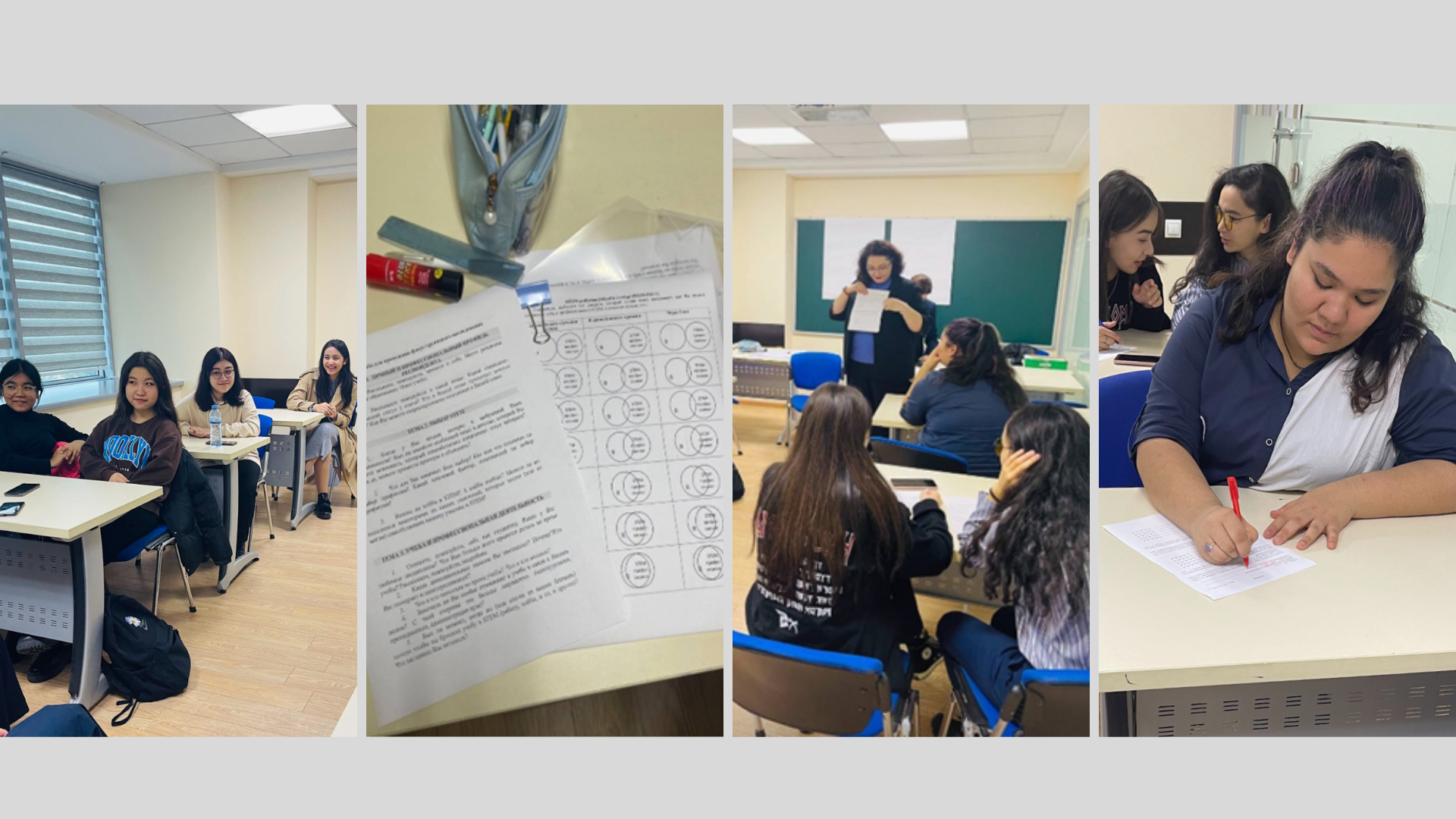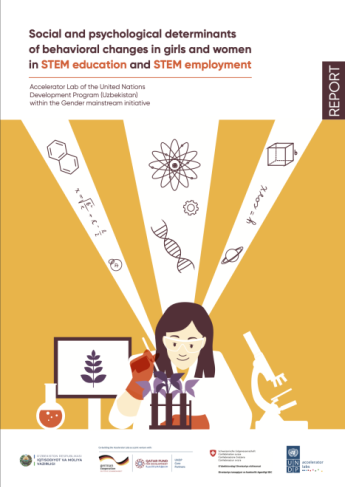
When we decided to explore another area of gender issues that are relevant to the UNDP’s work in the country and government’s agenda – we picked one of the most discussible topics – girls in STEM. The World of new jobs and skills is moving forward and changing rapidly. STEM (Since, Technology, Engineering and Math) area is experiencing boom and massive demand for skillful and talented young people that have passion to bring new ideas and solutions.
With this emerging demand of new, talented forces, STEM sphere is still experiencing gender gap and underrepresentation of women in STEM fields. Thus, the UNESCO report (2021) emphasizes that women make up only 28% of engineering graduates, 40% of computer science graduates and 22% of artificial intelligence specialists. Hence, when Accelerator Lab started exploring gender aspects of STEM education and career in Uzbekistan, we knew how important was to broaden our horizons and views. We tried to look from a different perspective on girls in STEM, to understand not only stereotypies that prevent girls from obtaining STEM education but rather to see the issue from the positive perspective. Based on many studies worldwide in this area, one of the main issues that has been noted, young girls are lacking positive female role models in STEM field. It made us think, that with this first for the country report in STEM, we want not only to show the gender gap in this field, which is already obvious, but girls and women who are already in STEM and through our study can become those role models for the girls who are passionate about careers in STEM, but due to the different reasons, they hold dreams and afraid on making those first important steps.

Furthermore, we wanted this study to be made for girls who are interested in STEM education and career but also for the encircle – parents, supposes, school etc. We wanted to understand what kind of role this close circle plays and how it impacts on their future choices when it comes to advancing education and careers, and what important of personality traits of girls influence their choice of STEM as future profession.
Our study included several steps to identify socio-psychological factors that influence on girls and women when it comes to the STEM education and profession. 400 respondents from Tashkent city, Andijan, Ferghana and Surkhandarya regions participated in the study. The average age of participants was around 29-30 years old.
First step included – focus group interviews and deep interviews among two groups: girls who are studying STEM and women who are doing careers in STEM.

focus group discussions held as part of the research
Deep interviews among these respondents, were conducted to find out the reasons/factors they did not drop out from STEM education and further in career. The second step of the study was survey with 217 socio-psychological questions, divided into seven blocks: “Socio-demographic data on respondents”, “Motivation on choosing STEM profession”, “Professional identity and involvement in the profession”, “Assessment of personal qualities”, “Social support”, “Stereotypes in STEM”, “Future perspectives”. This survey helped us to identify positive factors that influence girls and women, and possible confirmation of the results that we have received from focus-group and deep interviews.
Main findings
Our study posed a question: empowering girls and women in STEM: what works? How to empower girls and young women to choose STEM education and retain themselves in STEM? And the following we received as main insights:
- We discovered that girls typically become interested in STEM between the ages of 13 and 18. This interest is influenced by their school classes, participation in STEM activities, and exposure to STEM content on TV.
- The main external factors that shape girls' interest in STEM include books, movies, museums, science centers, video games, and STEM competitions at school.
- Surprisingly, fathers emerge as the biggest supporters of girls pursuing STEM education. In contrast, many mothers tend to encourage more traditional paths, such as teaching, believing that STEM careers are more suited for men and could complicate their future roles as wives.
We were also curious about what motivates girls to start education in STEM. The answers were:

It was important to for us to understand what psychological characteristics help girls to choose STEM education and further continue working in this area. And among 19 the most popular answers, three main characteristics were identified among girls and women:

Based on many studies worldwide, it is known that stereotypes keep many girls from fulfilling their dreams in STEM. They come mainly from families, schools, and communities where girls are seen as mainly in “typical” female roles and professions (teachers, nurses etc.). That is why we wanted to learn how our girls in STEM deal with these social stereotypes. When we asked – “How do you handle stereotypes in STEM”, we received a great answer from the girls – “We do not believe in stereotypes and say NO to them”. Girls pointed out that feeling purpose and readiness to learn more help them deal with stereotypes. Social support (family, friends, teachers) and gaining new skills and knowledge in STEM areas are also important factors that grant them confidence.
Interesting very useful insight were received regarding the possible dropout from the STEM education and career. Girls and women indicated that their professional choice will not change if:
- There is understanding that STEM provides an opportunity for them to constantly develop and to do what is interesting for them personally.
- It is supported by the country/government.
- There is an opportunity to grow professionally, and it is in high demand in the current market.
- There is strong support from the families and friends.
And for the last question, we were curious to know if girls and women have their own recommendations that could help more girls to be engage in STEM education and careers. The most popular recommendations we have received are:

It is not only on the International Women’s Day that we need to talk about investing in women, as it’s important to raise awareness on participation of girls in fulfilling their dreams with the support from different levels: family, school, government, and society.
"Your strength is in your movement forward towards your goal. You are on the right track! STEM is the future!"one of the participants of the survey

 Locations
Locations






